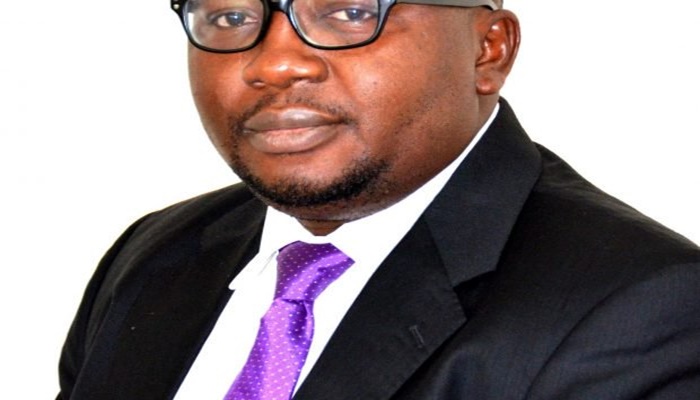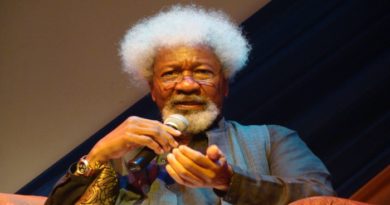2023 Electricity Act: Ten states join electricity market to address power challenges – Adelabu
At least ten states have entered the electricity market as part of efforts to tackle Nigeria’s ongoing power issues.
This move follows the enactment of the 2023 Electricity Act, signed into law by President Bola Tinubu, and marks a significant shift in the regulation and management of electricity in the country.
The Minister of Power, Adebayo Adelabu, made this announcement over the weekend during his remarks at the 2nd Annual Socio-economic Summit, organized by the Jericho Businessmen Club in Ibadan.
The event, themed “Powering Oyo State for Industrialization and Economic Development,” was held at the Ibadan Civic Centre, Agodi, Ibadan.
Adelabu, who was the special guest of honor, highlighted the federal government’s ongoing efforts to improve the electricity sector and address challenges within the industry.
He emphasized the government’s commitment to resolving bottlenecks and positioning the sector for long-term sustainability and financial viability.
He described the enactment of the 2023 Electricity Act by President Tinubu as one of the biggest achievements of the administration, saying boosting the industrial capabilities and developing and promoting domestic capacities in the power sector value chain is not only driving economic growth but also enhancing the sustainability of the sector in line with the government’s prioritization to ensure sustainability in the sector.
He also highlighted the various ways the government is exploring other sources of generating power to ease the pressure on the hydropower system.
The Minister also outlined several expectations from the state government to fully capitalize on the benefits of an independent electricity market.
These include ensuring security to protect power assets, establishing special courts for the swift prosecution of vandals and intruders targeting power infrastructure, and expediting the issuance of right of way to power developers.
Other expectations include providing land for power infrastructure such as substations or solar plants, eliminating land use charges on transmission substations, investing directly in the electricity value chain—such as supplying distribution transformers, poles, and power cables to underserved communities—and promoting investments in Renewable Energy projects across the state.
He added that the federal government is working actively to ensure rapid development of infrastructure in the sector to ensure electricity becomes accessible to all Nigerians.
He said the FG initiated two programs – the Presidential Power Initiative which has operationalization of additional 600MW wheeling capacity in the last year and the Presidential Metering Initiative which aims to supply 2 million meters by the end of this year to reduce the estimated billing practices in the sector.
He also highlighted the various challenges facing the actualization of the efforts while also expressing the readiness of the Ministry to allow for innovative solutions from relevant stakeholders.
The minister said: “The idea of exploring ways to enhance our industrial capacity and economic development across the national and subnational governments through a platform such as this aligns with our current mandate at the Federal Ministry of Power under my leadership which includes developing and prioritizing local content, fostering job creation, and reduction of Nigeria’s reliance on imports.
“By boosting our industrial capabilities and developing and promoting domestic capacities in every segment of the Nigerian Power sector value chain, we are not only driving economic growth but also enhancing the sustainability of the power sector in line with the government’s prioritization to ensure sustainability in the sector.
“Over the past year, the federal government in Nigeria has implemented a multi-pronged approach spanning across legislation, policy, and national infrastructure development programs, leveraging bilateral funding to derisk investment, sector commercialization, and strategic partnership with the investment community and development partners to address bottlenecks across the Nigerian Electricity Supply Industry value chain, setting the sector on a path toward bankability and long-term sustainability.
“One of our biggest achievements this past year was the enactment of the 2023 Electricity Act, signed into law by President Bola Ahmed Tinubu. Unprecedented groundbreaking legislation that represents a major shift in how we regulate and manage electricity in Nigeria.
“For the first time, state governments have been brought into the fold, empowering them to establish and manage their electricity markets.
“Already, 10 State Electricity Markets including our own Oyo State have been advanced in the process of developing our state electricity market, enabling us to create a more decentralized, responsive, and competitive electricity supply industry. This decentralization is key to fostering innovation, driving investment, and delivering greater energy security for our state.
“With the development of our own electricity market, the state is positioned to explore embedded power generation as back up or alternative to the National Grid for Industrial and Academic/Health Hub of the Southwest.
“Our state can also go further to develop our Renewable Energy portfolio and local capacity development in the power sector value chain like hydropower, solar PV, winds and biofuel.”




